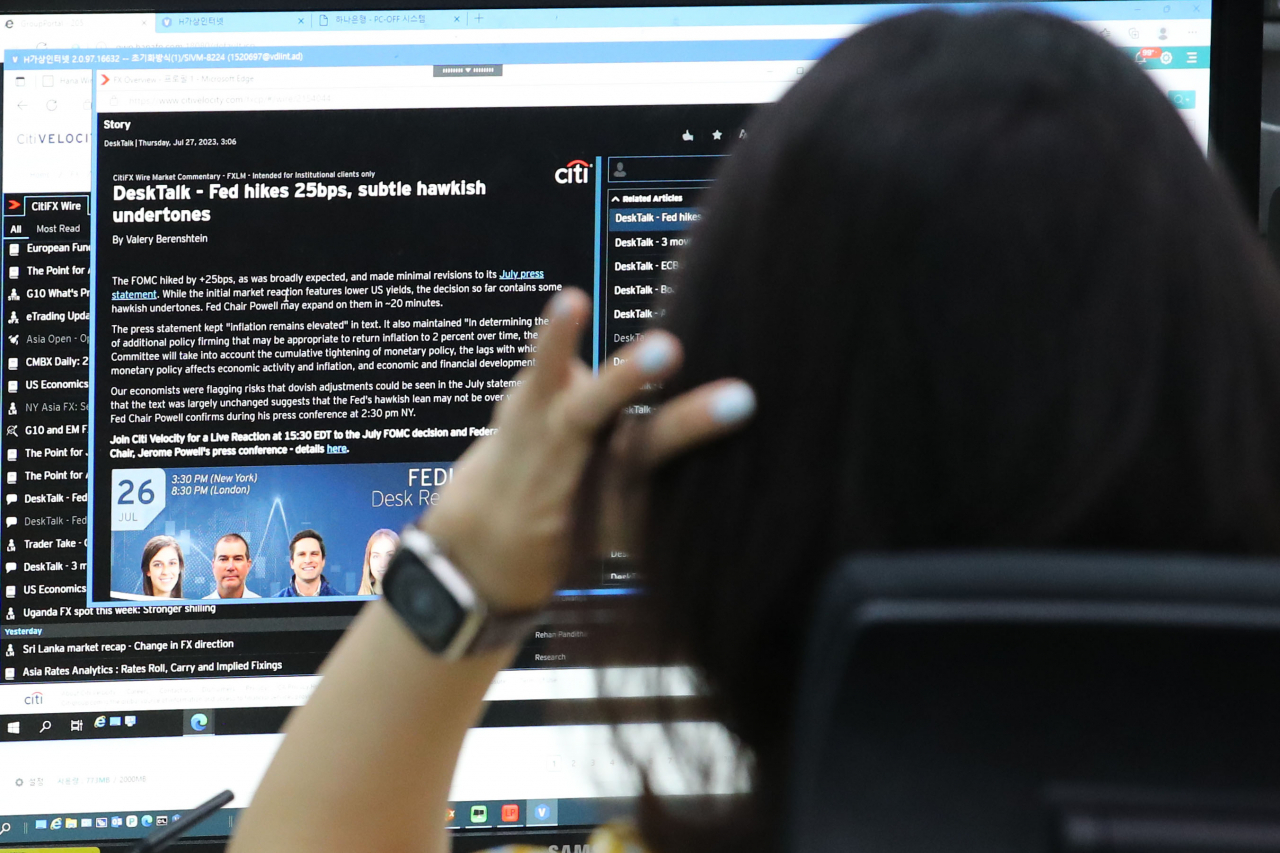Why retail investors are flocking to state bonds
Individuals increasingly turning eyes to more stable investment options amid higher interest rates
By Im Eun-byelPublished : Oct. 3, 2023 - 21:08

The South Korean government has decided to allow retail investors to directly invest in state bonds from next year amid the recent fervor for bond investments among individuals.
Last month, the government announced its planned revision to the State Bond Act, which aims to roll out bond products solely for retail investors.
Korea issues state bonds worth 150 trillion won ($110 billion) every year, but the market has been largely dominated by institutional investors.
As of the end of June, almost 80 percent of state bonds were held by local institutional investors at 79.4 percent, while 19.4 percent were held by foreign investors. Retail investors made up a tiny 1.2 percent.
Currently, retail investors can invest in state bonds through securities firms, but can invest a smaller amount compared to institutional investors. Retail investors are also required to pay extra commission fees.
Under the new measure, individuals can invest anywhere between 100,000 won and 100 million won in government bonds. The bonds are to have a maturity term of 10 or 20 years.
Any individual with an account for governmental bonds can subscribe to the bonds both online and offline through a sales agency. Primary dealers who are certified as investment brokers including brokerages and banks can participate in the bidding to be designated as a sales agency for the bonds.
“The planned revision is expected to widen the range of investment options for retail investors who are seeking long-term, stable investments,” said an official from the Finance Ministry.
The upcoming policy change comes amid increasing investor appetite for bond investments here, fueled by higher interest rates.
According to the Korea Financial Investment Association, retail investors net purchased bonds worth 27.59 trillion won this year until Sept. 22, a record figure surpassing last year’s 20.61 trillion won.
State bonds, worth 8.95 trillion won, made up the largest investment option, followed by corporate bonds (6.91 trillion won) and bank bonds (3.03 trillion won).
Unlike other types of financial investments, bonds for retail investors cannot be traded on the market. But the government plans to offer extra perks to encourage long-term investments.
“An additional interest will be provided if retail investors hold on to the bonds until the maturity date, which is not offered in other types of state bonds,” the ministry official added.
Industry watchers say the interest rate of the first state bond products is expected to range from 3 to 4 percent, slightly higher than market interest rates.
Another major benefit is tax reduction. Though gains from financial investment are subject to aggregate taxation up to 49.5 percent, profits from the new state bonds will be subject to a relatively modest 14 percent tax rate up until 200 million won.
The Finance Ministry said the bonds could be a retirement investment for investors.
For instance, if the coupon rate for the bonds is set at 3.5 percent, by investing 500,000 won in a 20-year bond every month until the maturity date, a person can receive 1 million won each month for 20 years on a pension system.
Another option would be receiving the payments in a lump sum. By putting in 50 million won in a 20-year bond, a person can receive 100 million won when the bond matures. The payout amount excludes taxes and additional rates.
The ministry said it will make a more detailed announcement on the state bonds for retail investors in December. Sales agencies will be selected through open bidding in January.








![[KH Explains] No more 'Michael' at Kakao Games](http://res.heraldm.com/phpwas/restmb_idxmake.php?idx=644&simg=/content/image/2024/04/28/20240428050183_0.jpg&u=20240428180321)


![[Weekender] How DDP emerged as an icon of Seoul](http://res.heraldm.com/phpwas/restmb_idxmake.php?idx=644&simg=/content/image/2024/04/25/20240425050915_0.jpg&u=)







![[Herald Interview] Mistakes turn into blessings in street performance, director says](http://res.heraldm.com/phpwas/restmb_idxmake.php?idx=652&simg=/content/image/2024/04/28/20240428050150_0.jpg&u=20240428174656)
